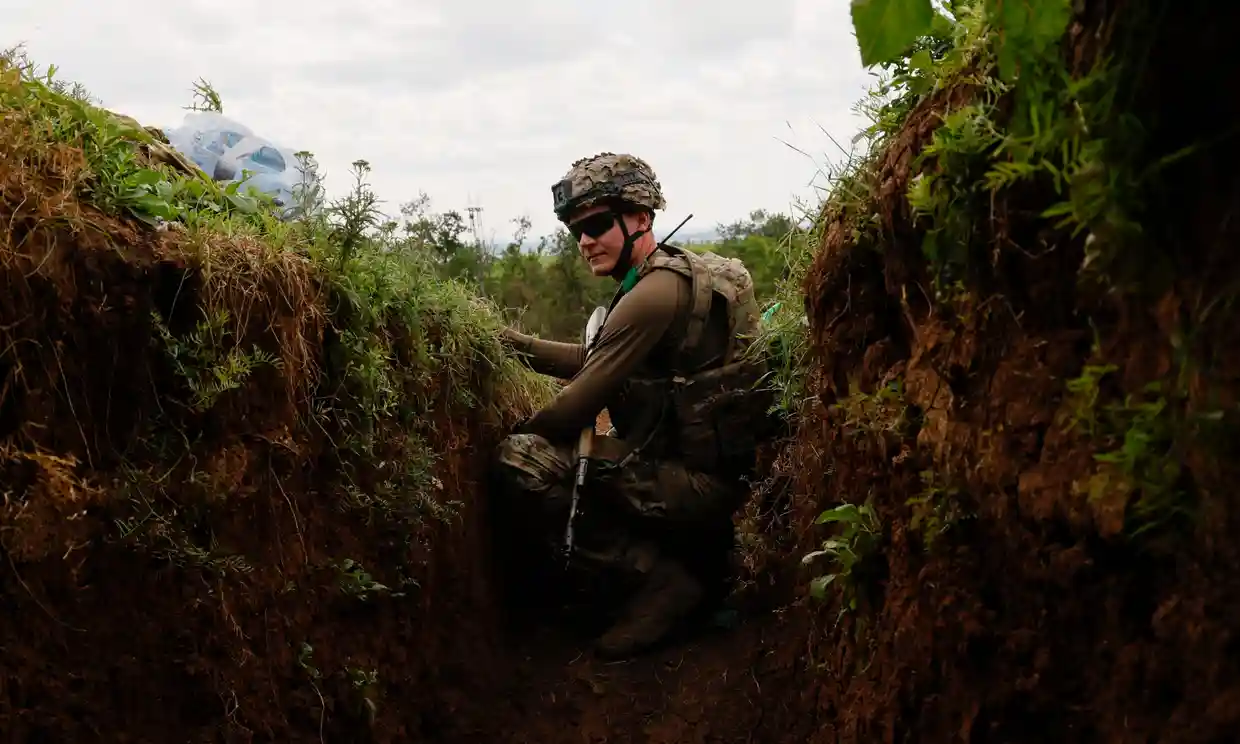An international office to investigate Russia’s invasion of Ukraine will open on Monday in The Hague, in the first step towards a possible tribunal for Moscow’s leadership.
Agence France-Presse reports that the International Centre for the Prosecution of the Crime of Aggression (ICPA) features prosecutors from Kyiv, the EU, the US and the international criminal court (ICC).
It will investigate and gather evidence in a move seen as an interim step before the creation of a special tribunal that could bring Kremlin officials to justice for starting the Ukraine war.
Senior officials would hold a press conference at the ICPA at the headquarters of the EU’s judicial agency, Eurojust, scheduled to begin at 11.15am (0915 GMT), Eurojust said in a statement. They included Ukrainian prosecutor general Andriy Kostin, ICC prosecutor Karim Khan, US assistant attorney general Kenneth Polite and EU justice commissioner Didier Reynders.

Calls for a special tribunal on Ukraine have mounted because the ICC, a war crimes court also based in The Hague, the Netherlands, has no mandate to investigate the broader crime of aggression. The ICC is probing more specific war crimes and crimes against humanity in Ukraine, and issued an arrest warrant for Russian president Vladimir Putin in March over alleged child deportations.
No need for new military draft to replace Wagner troops, says defence official
There is no need for a further mobilisation in Russia to replace Wagner fighters who have left the battlefield in Ukraine after a short-lived mutiny, state media said on Monday, quoting a defence official.
“There is no threat at all regarding a drop in the combat potential, both in the mid-term and long-term perspective,” Andrey Kartapolov, head of the state duma’s defence committee, was quoted as saying by Russian state news agency Tass.
Reuters reports he also said:
At the time of the rebellion, there were no Wagner PMC [private military company] employees at the forefront, they were all in camps. As for replacing them [Wagner] in the reserve, there is something and someone to replace them with.

The Wagner group’s chief, Yevgeny Prigozhin, led his forces against Russia’s top military brass just over a week ago, embarrassing the Kremlin. He later abandoned his advance on Moscow and struck a deal with the Kremlin under which he accepted exile in neighbouring Belarus.
Following Russia’s invasion of Ukraine in February last year, President Vladimir Putin in September ordered a “partial” military call-up to boost regular forces in the first military mobilisation in Russia since the second world war.
Hundreds of thousands of men have been drafted, while tens of thousands more have fled abroad.
On 13 June – before the Wagner rebellion – Putin told reporters there was “no such need” for any additional mobilisation.
The European Union is considering a proposal to allow a Russian bank under sanctions to carve-out a subsidiary that would reconnect to the global financial network as a sop to Moscow, the Financial Times has reported.
The move would be aimed at safeguarding the Black Sea grain deal that allows Ukraine to export food to global markets, the newspaper said on Monday.
The plan, which was proposed by Moscow through negotiations brokered by the UN, would allow the bank to create a subsidiary to handle payments related to grain exports, the FT said, citing people with knowledge of the matter, Reuters reports.
The new entity would be permitted to use the global Swift financial messaging system, which was closed to the largest Russian banks following the Ukraine invasion last year.
Russia’s envoy to the United Nations in Geneva said there were no grounds to maintain the “status quo” of the Black Sea grain deal that is set to expire on 18 July, the Russian news outlet Izvestia reported on Monday.
Reuters reports that envoy Gennady Gatilov told the outlet that the implementation of Russia’s conditions for the extensions of the agreement was “stalling”. Those conditions included the reconnection of the Russian Agricultural Bank (Rosselkhozbank) to the Swift banking payment system.
Gatilov told Izvestia:
Russia has repeatedly extended the deal in the hope of positive changes. However, what we are seeing now does not give us grounds to agree to maintaining the status quo.
